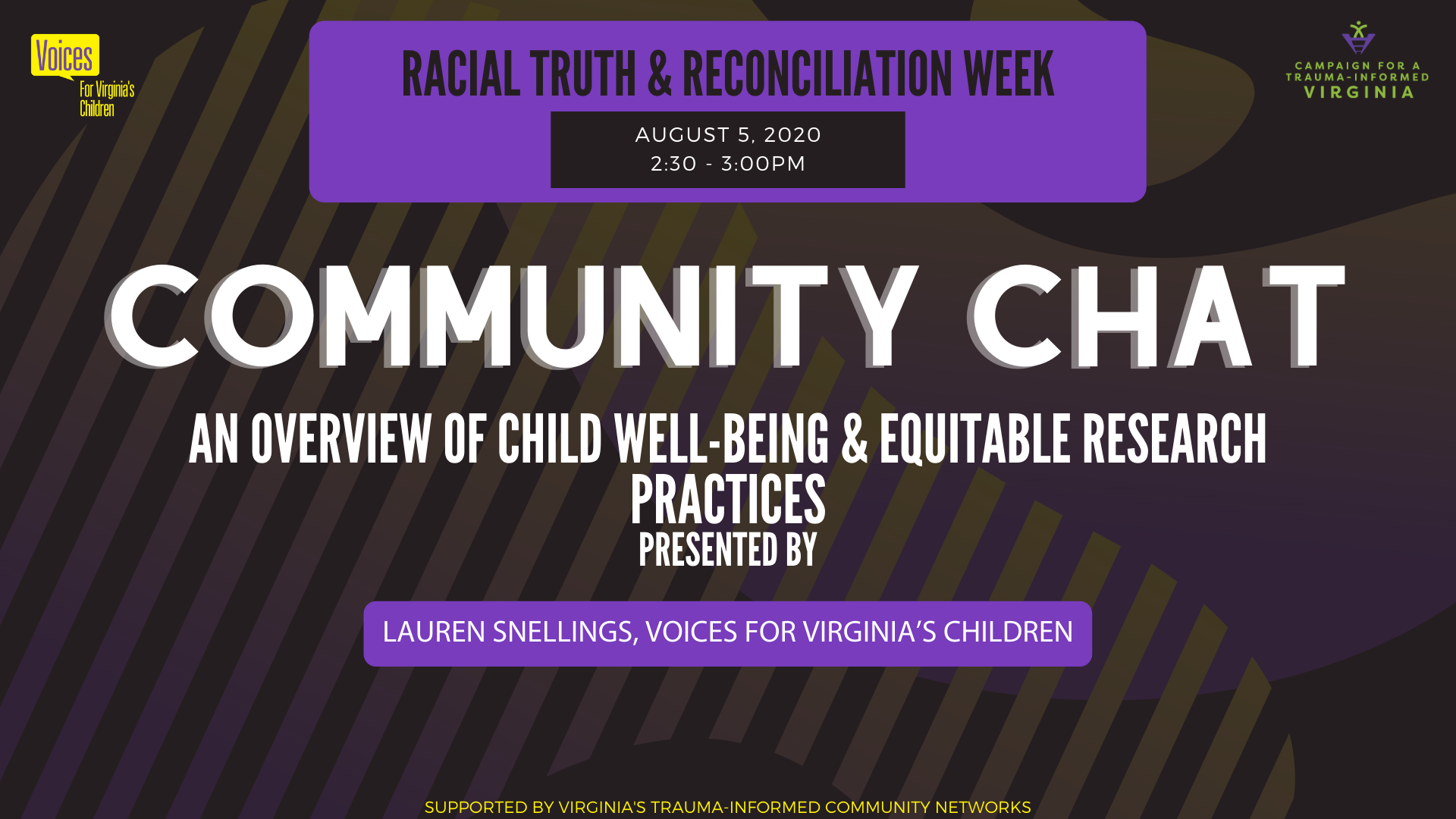

At Voices for Virginia’s Children we help all children in Virginia thrive, particularly the most vulnerable. Voices is home to the KIDS COUNT Data Center, a national network funded by the Annie E. Casey Foundation that encompasses Virginia-specific data for all 134 localities in the Commonwealth. This incredible tool has more than 200 state- and locality-level indicators on child well-being. Users are able to review and compare demographics such as employment and income levels, poverty and public assistance rates, and housing and test scores over time. They also have the option to review this data by specific characteristics such as age, race, and family nativity.
It’s important as child advocates, who care about the well-being of all children, to look at subpopulations of children to make sure that, in fact – all children are doing well. We must look at data for subpopulations, who often have trends that are masked by larger groups, to ensure that resources are spent on those who need it the most. We also have a responsibility to ensure that policy makers, advocates, and the general public can access this information and use data in the most effective way to advance equitable change in our communities. Today, there are many discussions around what that fight looks when centered around equity. What does it look like to transform our institutions internally and be intentional in our advocacy to create equitable change?
Voices for Virginia’s Children Research Director, Lauren Snellings, explores this topic in her community chat for Racial Truth & Reconciliation Week: An Overview of Child Well-being and Equitable Research Practices. In this presentation, you will hear an overview of what child health and well-being looks like for children in Virginia. It will also analyze the social determinants of health, including poverty, adverse childhood experiences, foster care, and more. Snellings also will walk participants through the difference between equity and equality, as well as present actionable steps participants can include in their research practices to be more intentional with integrating a race equity lens in their work.
Read More Blog Posts